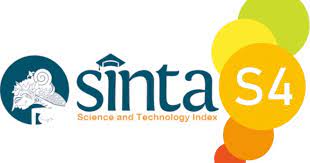Peer Review Process
After manuscripts are submitted online to English Learning Innovation (englie), the screening committee conducts the initial screening process. The managing editor assigns each manuscript that has passed the screening process to two associate editors for reviews. The manuscript will be sent to at least two anonymous reviewers (Double Blind Review). Reviewers' comments are then sent to the corresponding author for necessary actions and responses. The assistant managing editor collects the reports of the two reviewers, and if both concur that the article is publishable, the assistant managing editor sends the article with the collected reports and recommendations to the managing editor. In consultation with the editor in chief, the managing editor makes the final decision on the acceptance of the manuscript and supervises revision and preparation for production.
Duties of reviewers
Contribution to editorial decisions
Peer review assists the editor in making editorial decisions and may also help the author improve the paper through editorial communications with the author. Peer review is an essential component of formal scholarly communication, and is at the heart of the scientific method.
Promptness
Any selected referee who feels unqualified to review the work mentioned in a manuscript or who knows it would be difficult to review it promptly should inform the editor and withdraw himself from the review process.
Confidentiality
Any manuscript provided for review shall be considered as confidential. They are not to be shown or shared with others except as approved by the editor.
Standards of objectivity
Reviews have to be conducted with objective, fair, constructive and confidential manners. Personal criticism is considered as inappropriate. Referees should clearly express their views with justifiable supporting arguments.
Acknowledgement of sources
Reviewers should identify specific published research which the authors have not cited. Any statement previously reported of an observation, derivation, or argument should be accompanied by the relevant citation. A reviewer should call attention of the editor to any significant similarities or overlap between the manuscript being reviewed and any other published paper they have personal knowledge of.
Disclosure and conflict of interest
Unpublished materials disclosed in a submitted manuscript should not be used in a reviewer's own research without the express written consent of the author. Privileged information or ideas obtained by peer review shall be kept confidential and shall not be used for personal advantages. Reviewers do not accept publications in which they have conflicts of interest with any of the authors, companies, or institutions connected to the study.
















1.png)












